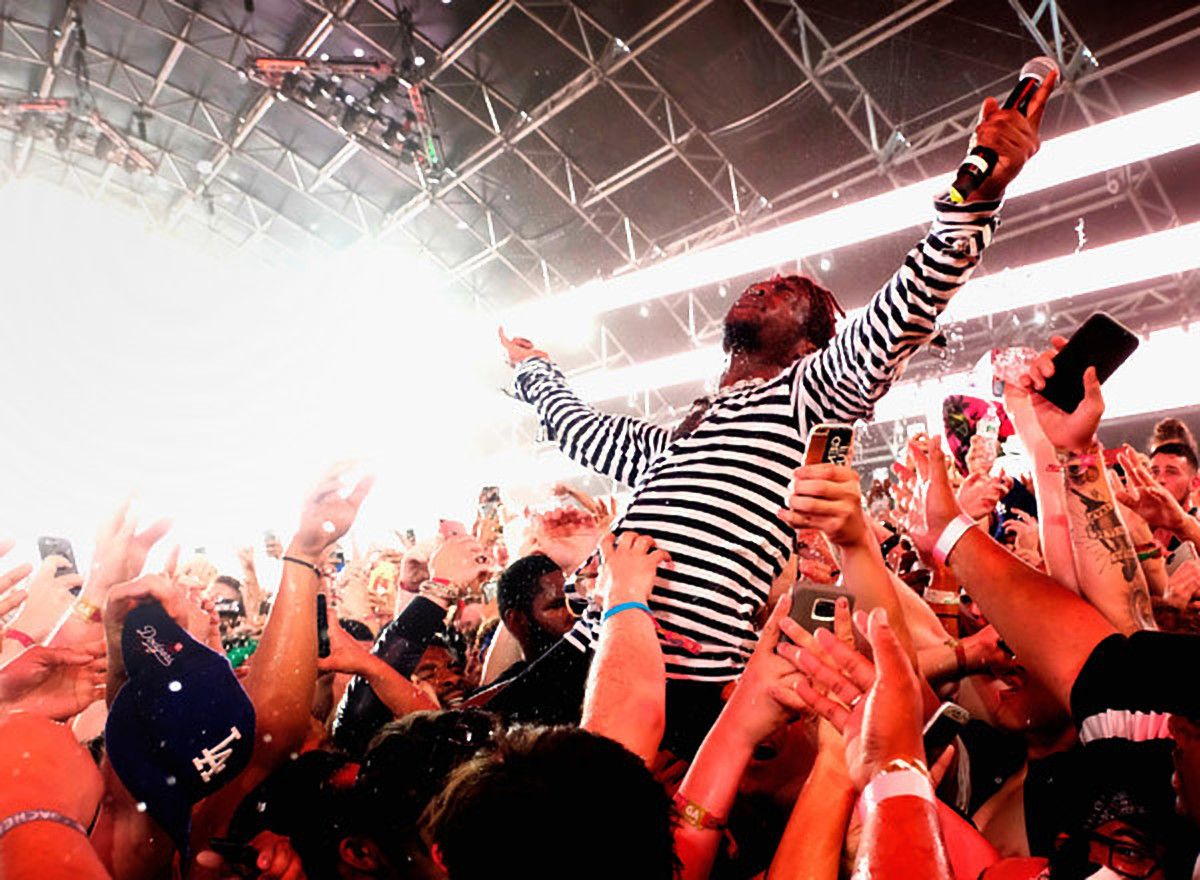There’s been a musical revolution going on in the past year. Young hip-hop artists have been gaining notoriety for their “bad boy” images and excessive lifestyles. It’s a new form of punk rock, some people call it, where all the resources needed are available to them and all that’s required is just a little attitude and emotion.
The term’s been dubbed “Soundcloud Rap,” which is funny, because most of the artists in this genre don’t even rely on Soundcloud anymore as a platform, given that’s how they rose to prominence. Yet, that’s what gets the point across: to be successful you don’t need big labels or streaming giants like Spotify or Apple Music. It’s all in the delivery.
That’s what the youth goes for nowadays – a rejection of what’s polished and marketed and a passion for the raw and expressive. One listens to an album by XXXTentacion or Juice WRLD, and even the most uneducated person can tell that many of the songs aren’t even mixed, but rather sound as if it was recorded in someone’s backpack. But that’s what’s popular among them. They could care less about officiality.
As many of these artists dub themselves “emo rap” (it sounds like they’d rather listen to and take influence form Nirvana or Marilyn Manson than Tupac or Biggie), it’s actually fairly hard to pin down what the music actually sounds like. Think minimalistic hip-hop, with raw flat beat loops and aggressive lyrics. However, this genre of hip-hop is not an isolated phenomenon like the other short-lived, one-off genres like crunk, scream-o, or grunge. Rather, it seems to be a beast that actively eats up different genres and spits them back out. It’s not all focused around one sound, but a culmination of sounds. (see “One Minute” by XXXTentacion which manages to incorporate a funk-metal refrain). However, it’s not borrowing and using different tool sets, but using what’s at its disposal.
And because of such accessibility to resources, Soundcloud rap (yes, I’m still calling it that) has still managed to increase music revenue ten-fold. Take a look at your Spotify Top 50 U.S. trending chart and the top 15 will easily be taken by a XXXTentacion, Lil Pump, Lil Peep, Lil Xan, Post Malone, Juice WRLD, Lil Gnar, Trippie Redd, or 6ix9ine.

But how? How has something so organic and grassroots become the biggest money-maker in the music industry since the steep decline of physical record sales? Well, ever since 2017, the year streaming finally surpassed physical record sales, these young hip-hop artists with mass online fan bases were given the chance to take the throne. And ever since, record labels have been moving all their assets and investing in mostly hip-hop, taking away money and attention from other genres. Another big reason is because of how we ingest music nowadays. Along with the decline of physical sales, gone are the days when albums were the primary source material for listening to music. Today, it’s all about the playlist community, all about algorithms to pin down what other artists listeners would like based on what they’ve listened to in the past. It’s a formula that easily feeds you music that you yourself don’t know you want yet, but eventually will.
In addition, it’s not about how the music is marketed, because it’s marketed by the window views into the reckless behavior of these artists. When XXXTentacion was forced to appear in court facing four felony charges, one of them being aggravated battery of a pregnant woman, his victim’s claims didn’t disturb his rapid ascent – his debut album, 17, remained in the top 10 of the Billboard 200 for the next three weeks. When 6ix9ine was charged with NINE felonies, his music rose in popularity as well, as did Lil Pump’s music. And then when XXXTentacion was shot and killed? Well, you can only imagine how may new listeners he acquired following that.
The reason people are calling it the new “Punk Rock” is because it’s not just a business, but a lifestyle. We now live in a transparent enough world where how well an artist’s music performs is directly correlated to how they represent themselves in the public. Gone are the days of marketing and publicity to get your album to a wider audience. It’s no longer about having an album cover in a record store anymore. It’s about having a presence, and how well you can get your aggression across. And what curtails a bigger audience than news outlets?
And so, will this bubble of “influence” and music eventually pop? Well, it depends on your definition of “pop.” Not to say that cash maker will abruptly stop making money, but the genre has already caused crimes and claimed a number of lives as a result of the reckless culture it feeds off of, which can only last so long. But when the entire music industry is held at the mercy of young, barely drinking-age artists who are not entirely aware of where the speculative money spent on them is going, the industry starts to churn out casualties. When you’re amidst a lucrative wave, the likes of which haven’t been seen since the 90s, it’s scary for labels to pronounce there will eventually be an end. And it’s only a matter of time until the American public catches up on how much the losses quickly outweigh the gains.
